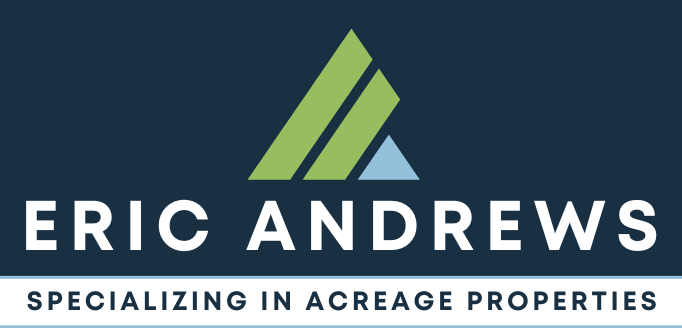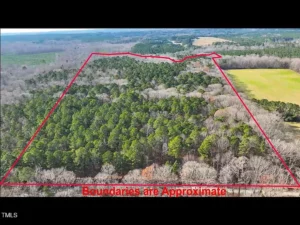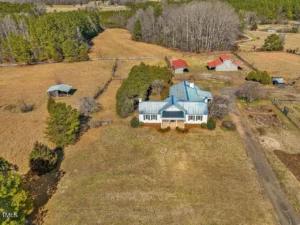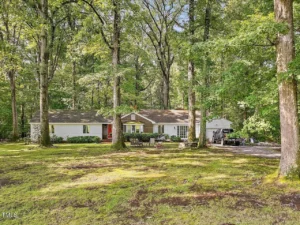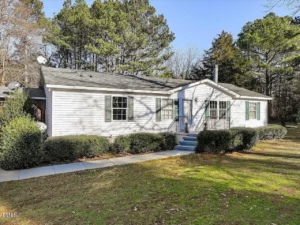Accredited Land Consultant & Real Estate Broker Eric Andrews discusses Restrictive Covenants, Protective Covenants, and deed restrictions.
Speaker 1: What’s the difference between restrictive covenants and the other?
Speaker 2: Protective covenant? Restrictive versus protective covenants. Perspective, there’s nothing really different about them. They’re both, it’s marketing, it’s the language. They’re both deed restrictions. So you just bought the perfect piece of property out in the country, 10 acres, and there’s a chicken house next door. Guess what that means, it’s going to be stinky. There’s nothing you can do. Or there’s a beagle kennel next to your property. You’re going to hear dogs barking, or a motorcycle dirt bike track. These are all things I’ve actually had. You know, I want 10 acres out in the country. I don’t want anybody to tell me what to do. Well, guess what that means, nobody’s telling your neighbors what they could do either. Firing range. That’s another big one really. People are shooting guns all the time. Yeah.
You wanted a place where you could go out and shoot your gun anytime you wanted. That means your neighbor can shoot their gun anytime they want. So, you can park your RV wherever you want. You can pee off the back porch. You can shoot your gun whenever you want. You can have roosters goats or horses, but your neighbors can do whatever they want as well. So, maybe you want to be in a neighborhood, you better pick the type of covenants that match and mesh with your lifestyle. So sometimes we say that the covenants are loosey-goosey. We would call those protective covenants. And sometimes we say that they’re like super super tight. And we would call those restrictive covenants. Covenants are good that they help protect your property values. And in certain areas, even though they’re super super strict, that are still protecting your property values, but they might be inhibiting your freedoms and what you want to do.
So I have some examples written down here, whether or not you want to be restricted or protective, do you want to be able to mow your lawn after 8:00 PM? I lived in a neighborhood, I will not mention it by name, but I lived in a neighborhood at one time where I got a fine in the mail because I mowed after 8:00 PM. It’s still light until 9:10, 9:20. I often work until 7:30 or 8. So I got home, wanted to mow my yard. That’s a big no no. Somebody turned me in and I got a violation in the mail because I mowed. There are some areas in Chatham county, you’re not even allowed to mow your own lawn. So a service has to come in. This was actually very interesting, it goes to the Supreme Court, the state Supreme Court. He says it is my constitutional right to be able to mow my own yard.
And the judge said, no you knew this going in. When you bought in the neighborhood, you do not have the right to mow your own yard. So you have to use this service. It’s part of what you agreed to do. You want to build a workshop on your property? Now that’s one. If you want to build a workshop on your property, those are going to be toward the loosey-goosey kind of covenants. Do you want an architectural review board? When, somebody builds a house, do you want somebody deciding what color the shutters need to be? What color do the gutters need to be?
Do you want to raise a few chickens without a rooster? A lot of people right now have the rooster claws because roosters are what make the noise. So a lot of places are saying, okay you can have chickens, but you can’t have a rooster. Do you want to be told to keep your boat or car in the garage? There are neighborhoods in Chatham County where you are not allowed to leave your car in the driveway, you have to pull it into the garage and you have to shut the garage door so it can get pretty strict. So if you have no deed restrictions, anything goes for you and your neighbors. One of the things I like to tell people is if you own enough, Anchorage doesn’t matter. Well, if you own 300 acres, does it matter what your neighbors do? Probably not, but I always tell people at 10 acres, you’re going to see your neighbors for 10 acres in the wintertime.
20 acres, you’re going to see their lights, and you’re going to hear them. Simple loose covenants would mean no commercial business. So you’re not going to have the kennels. Sometimes you might want to say no discharge of a firearm after a certain time of day. Not being able to know your own lawn. Sometimes we have like fencing with approval. You can only use black iron and you have to use this company and it has to be installed by this company. Can you imagine like somebody telling you what kind of fencing you can put up? I’ve seen another one, no outdoor parties after 7:30 PM. So really really important. These covenants can be 20, 40, 60. I’ve seen them be 300 pages with all the amendments and changes and some of them are complex subdivision. So it’s important for you and your real estate agent to read them and make sure that you’re in a neighborhood that has rules, that you are willing to accept, or you can go complete wild rest and have no rules whatsoever.
